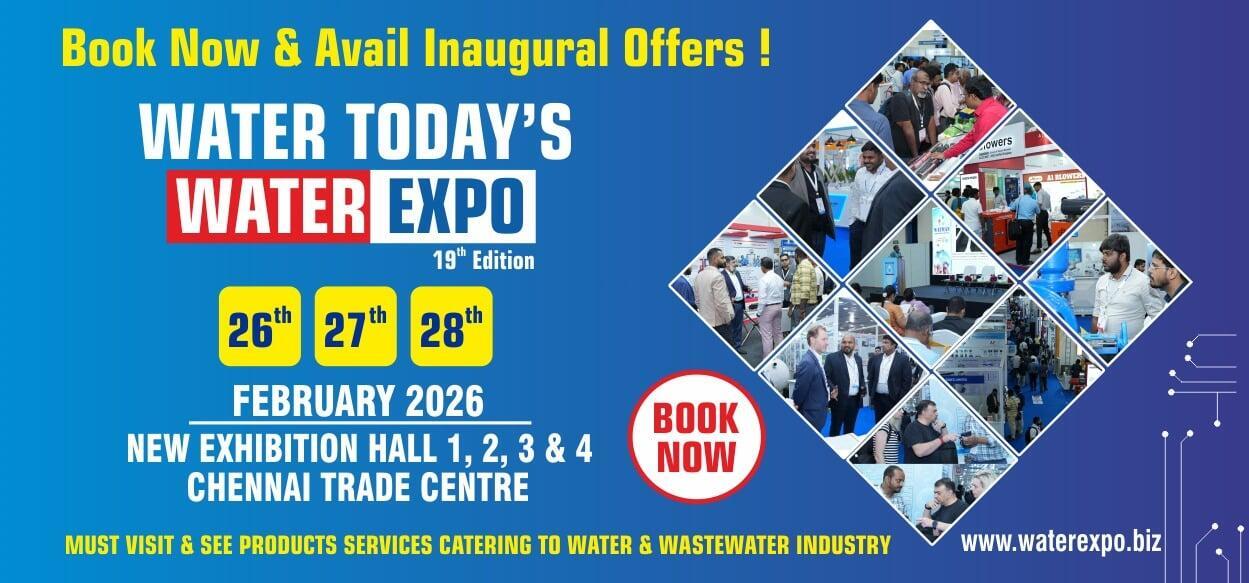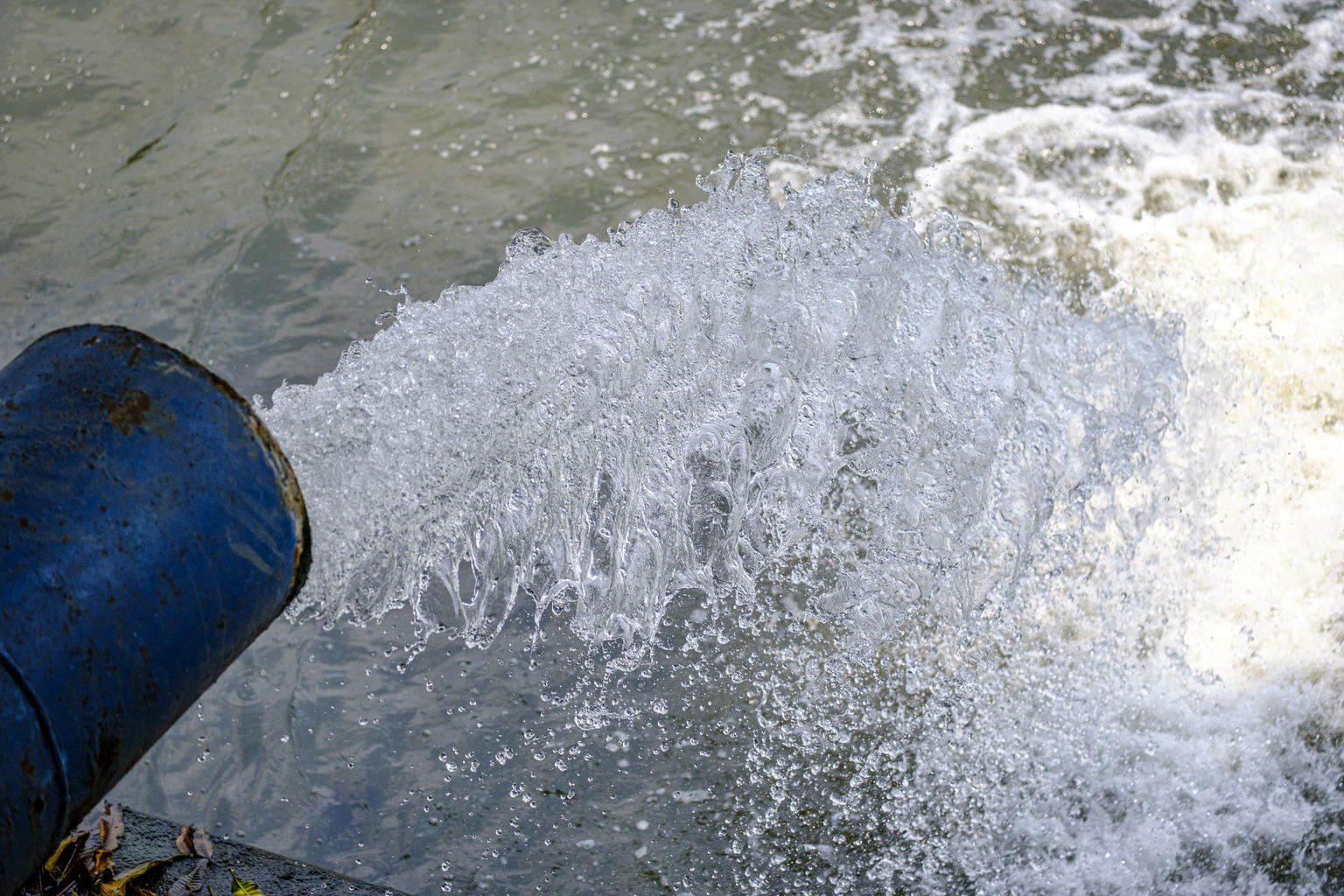Cities are the engines of growth—but they are also at the heart of some of the most pressing sustainability challenges of our time. From shrinking water reserves and overflowing landfills to the growing impact of climate change, urban environments are under intense pressure. For policymakers, municipal leaders, and engineers, this is no longer a distant concern—it is today’s reality and tomorrow’s risk.
Water: Scarcity and Stress in Urban Systems
Water: Scarcity and Stress in Urban Systems
Urban water demand is rising at an unprecedented pace. Groundwater tables are plummeting, and decades-old infrastructure is losing billions of litres daily through leaks and inefficiencies. Add climate-driven irregular rainfall and seasonal extremes, and the result is an increasingly fragile urban water balance. Floods in one season and droughts in another have become the “new normal” for many Indian cities.
Waste: The Mounting Urban Burden
Waste: The Mounting Urban Burden
Solid and liquid waste management is another critical challenge. India’s cities are generating waste at a scale that outpaces treatment and recycling capacities. Most municipal sewage goes untreated, contaminating rivers and aquifers. Landfills are overflowing, releasing leachates and methane into the environment. Without smarter solutions, urban waste will continue to undermine both public health and ecological stability.
Climate Change: The Amplifier of Risks
Climate Change: The Amplifier of Risks
Climate change doesn’t act in isolation—it amplifies existing vulnerabilities. Heatwaves increase water and energy demand. Sea-level rise threatens coastal aquifers with salinity intrusion. Intense rainfall events overwhelm drainage systems, causing floods that damage infrastructure and displace communities. For cities, climate resilience is no longer optional—it’s a survival strategy.
Practices and Solutions Taking Shape
Practices and Solutions Taking Shape
Forward-looking municipalities and industries are implementing integrated strategies to mitigate risks and strengthen resilience:
- Integrated Water Resource Management (IWRM):
This approach balances supply and demand by combining rainwater harvesting, stormwater capture, wastewater reuse, and aquifer recharge. For example, decentralized treatment plants are helping cities like Chennai and Bengaluru reuse wastewater for landscaping, cooling, and industrial operations. - Waste Segregation and Circular Models:
Cities are gradually moving towards segregation at source, enabling higher recovery of recyclables. Waste-to-energy projects and composting plants are reducing landfill loads while creating alternative energy and organic manure. This “waste-to-resource” approach is shifting waste management from disposal to value recovery. - Nature-Based Urban Infrastructure:
Green roofs, permeable pavements, bioswales, and artificial wetlands help manage stormwater, reduce urban heat island effects, and improve biodiversity. These low-cost, high-impact interventions are particularly valuable for flood-prone cities. - Decentralized Systems:
Instead of depending only on large, centralized plants, modular systems for wastewater treatment and solid waste management are proving more adaptive and easier to scale in dense urban neighborhoods. - Public–Private Partnerships (PPPs):
Several cities are piloting PPP models for sustainable water and sanitation services, bringing in efficiency, accountability, and access to advanced technologies.
Technologies as an Enabler
Technologies as an Enabler
Technology is no longer a supporting tool—it is becoming the central driver of sustainable urban solutions. Some of the most promising enablers include:
- Advanced Wastewater Treatment Technologies:
Membrane Bioreactors (MBRs), Sequencing Batch Reactors (SBRs), and Moving Bed Biofilm Reactors (MBBRs) are providing higher efficiency in compact footprints. Zero Liquid Discharge (ZLD) technologies are helping industries recycle and reuse 95–98% of wastewater. - Smart Water Networks:
IoT sensors detect leaks and monitor pressure in real time, reducing non-revenue water. AI-powered demand forecasting enables utilities to optimize distribution, preventing shortages during peak demand. Smart metering allows consumers to track usage, creating accountability and efficiency. - Waste-to-Energy and Resource Recovery:
Anaerobic digestion plants convert organic waste into biogas and electricity. Pyrolysis and gasification technologies are turning plastic and non-recyclables into fuel. Sludge from sewage plants is being processed into bio-fertilizers and construction material. - Climate-Resilient Infrastructure Tools:
GIS-based urban planning helps cities design drainage and water supply systems aligned with future climate scenarios. Digital twins simulate infrastructure stress under different climate events, guiding better investments. - Energy Integration:
Solar-powered water pumps, hybrid treatment plants, and biogas recovery systems reduce dependency on fossil fuels while lowering operational costs. - Carbon Capture and Cooling Technologies:
Pilot projects in urban centers are testing carbon capture from waste incineration plants, while district cooling systems reduce energy demand and heat island effects in commercial zones.
Together, these technologies not only address immediate challenges but also align with long-term sustainability, decarbonization, and resilience goals.
Water Expo Chennai 2026 – A Platform for Change
Water Expo Chennai 2026 – A Platform for Change
This is where Water Expo Chennai 2026 comes in. The Expo provides an ecosystem where technologies, policies, and practices converge. It creates an opportunity for:
- Showcasing innovation—from advanced treatment plants to AI-enabled monitoring systems.
- Policy dialogues on regulation, funding, and climate adaptation strategies.
- Knowledge exchange through forums like H2O Connect and Water Conclaves, where experts present real-world case studies and best practices.
- Building partnerships across public, private, and international players for faster adoption of resilient solutions.
A Way Forward
A Way Forward
The urban challenges of water, waste, and climate change may be daunting, but they are not insurmountable. With the right mix of policy reforms, technology adoption, and collaborative engagement, cities can build systems that are not just sustainable but resilient.
In 2026, Water Expo Chennai will serve as the catalyst to drive this transition—bringing visionaries, experts, and solution providers under one roof to shape the future of our cities.


